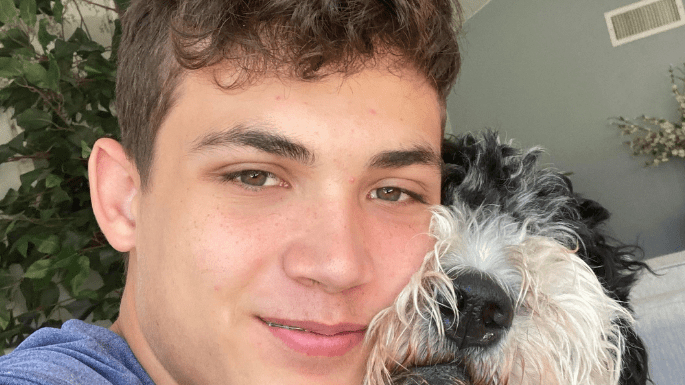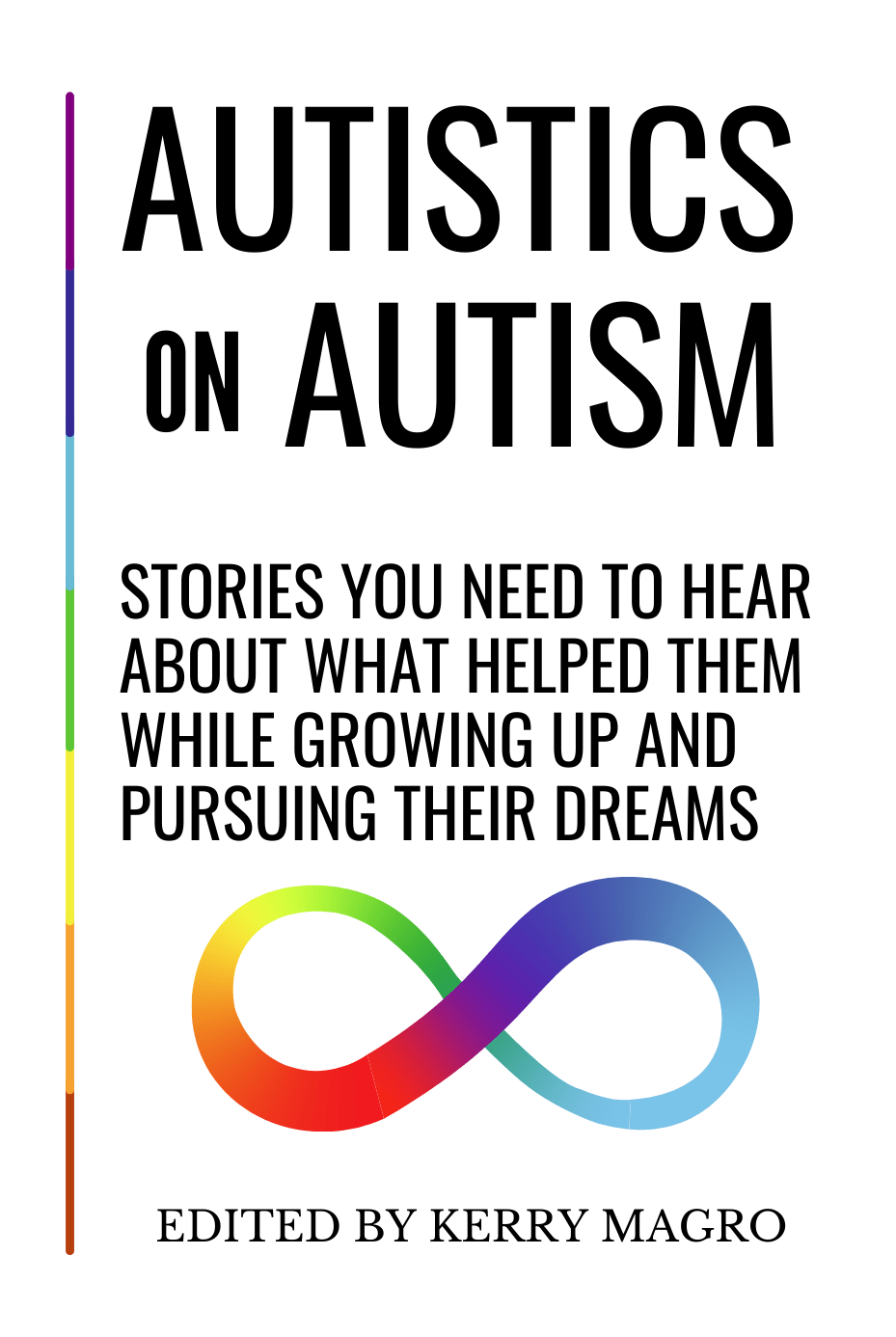This guest post is by Isaiah Lopez-Corbett, a young man on the autism spectrum who was diagnosed with autism at the age of 9 and is attending Montana State University. Isaiah is applying for the Spring 2022 Making a Difference Autism Scholarship via the nonprofit KFM Making a Difference started by me, Kerry Magro. I was nonverbal till 2.5 and diagnosed with autism at 4, and you can read more about my organization here. Autistics on Autism: Stories You Need to Hear About What Helped Them While Growing Up and Pursuing Their Dreams, our nonprofit’s new book, was released on March 29, 2022, on Amazon here for our community to enjoy featuring the stories of 100 autistic adults.
There are lots of stories about bullying, or disrespect, but not a lot about how you bully yourself. How much ableism can come from you, the one person you’re supposed to be able to rely on for support. Of course, being able to tough it out from other people is good. You stop bothering with the weird looks when you hand flap in public. Though what’s arguably more important than anything else, is respecting yourself.
Many people describe knowing they were different before being diagnosed and being able to rationalize why afterward. At least that’s how a lot of people who were diagnosed after 5 have told me they felt. I was diagnosed at 9, and yet before then, I was ignorant of how different I might have seemed. I never made eye contact, I often would hand flap or jump to stim, and I wouldn’t get along socially with other kids, but to me, nothing seemed different. There was something about the way autism was used the first time I heard it. Something that made it sound kind of scary. I remember when my parents first talked to me about autism. It was incredibly scary to hear so many details about me read straight out of a book. Even though it was just meant to communicate what autism was it made me feel awful. Like who I was was some sort of disease. I remember crying and running to my room after it was read aloud.
People love to use the word autism as an insult. It’s almost becoming a replacement for the R-slur for when people see something they find irrational. “Dude you look so autistic” might be a response to a funny face. I knew that I was odd, but I didn’t know how much. I knew that I could easily look autistic and that scared me. Because I wanted to have pride in myself, and not be that image of an autistic person those kids were talking about. I spent a lot of years feeling ashamed of myself. Masking was hard. I had no real faith in myself to do anything. I had struggles, but I’d often try to hide them. I’d rather not try. Eventually, though I was forced to get a job.
When I started working my first real job, I was terrified beyond measure. I was so nervous that I’d misinterpret all the instructions, offend someone, mess up and destroy something. I had very little faith in myself being able to handle it. The moment I encountered my coworkers I couldn’t make eye contact, and I was well aware that my speech was very odd to them. I’m pretty sure my tone of voice can be inappropriate for the conversation. Despite this, my coworkers seemed to be happy that I was trying so hard to do things right. Despite me occasionally speaking incomprehensively, or looking at the wall behind them instead of their eyes, they didn’t seem to think too much of it. My manager, Minh, eventually called me back to the kitchen. I’d noticed that he’d sent the two other people there to make and serve the sandwich order and had just left me and him in the back. I wasn’t ready for what he said.
“Hey Isaiah, you’re autistic right?” The question blasted my soul out of my body, and clear into space. I had no idea why they wanted to know, or what they were going to do with this information. Were they just curious? Was it some sort of joke using autistic as an insult? Would he start to think I couldn’t do the job because I was autistic? I was so scared and after 5 seconds of silence reluctantly said yes.
“Don’t worry about it I’m not…judging” I could see that he took a few moments to find the words as he was still learning English. “My son’s actually autistic, so I could tell.”
I was surprised, as the chances of me working with someone with an autistic kid were pretty darn low. “I just wanted to tell you that if you need anything from me just ask. If you ever get overwhelmed you can always walk into the back. If you have anything at all you need, just ask. And I don’t have to tell anyone else if you don’t want me to.”
I was stunned. I’d never had anyone offer a little bit of relief before. I was shocked that he’d said it so respectfully, with little hesitation. He didn’t think less of me, nor did he ignore my autism. He just talked with me openly. This was a moment that made me realize that I didn’t have anything to be ashamed of. I didn’t have to hide that I was autistic because there were people out there who are accepting. It helped me worry less. I only worked with him for 2 months, but his response that day will resonate with me for the rest of my life.
I started to get in touch with disability services. I started to be more vocal about my needs. I started to accept myself as I was. As an autistic person. Being autistic has affected my life in many ways, and it’s part of me. I don’t feel shame about being autistic anymore. I want to be proud of who I am.
Follow my journey on Facebook, my Facebook Fan Page, Tiktok, Youtube & Instagram,
My name is Kerry Magro, a professional speaker and best-selling author who is also on the autism spectrum. I started the nonprofit KFM Making a Difference in 2011 to help students with autism receive scholarship aid to pursue post-secondary education. Help support me so I can continue to help students with autism go to college by making a tax-deductible donation to our nonprofit here.
Autistics on Autism: Stories You Need to Hear About What Helped Them While Growing Up and Pursuing Their Dreams was released on March 29, 2022 on Amazon here for our community to enjoy featuring the stories of 100 autistic adults. 100% of the proceeds from this book will go back to our nonprofit to support initiatives like our autism scholarship program. In addition, this autistic adult’s essay you just read will be featured in a future volume of this book as we plan on making this into a series of books on autistic adults.















